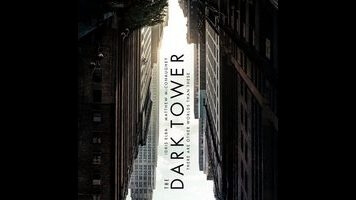Stephen King’s fantasy saga is reincarnated as a dud in The Dark Tower

Oh, to think what a director like Guillermo Del Toro—or anyone from the current crop of hungry young genre directors—might have done with a film version of Stephen King’s fantasy cycle The Dark Tower. But instead of the sort of nerdy fantastist the material deserves, we’ve ended up with Nikolaj Arcel (A Royal Affair), a stolid Dane who earns his journeyman card by getting through an entire movie full of child-snatching monsters, interdimensional travel, antique firearms, and wacky sorcery without even once giving the sense that he thinks that any of this stuff is cool. No, Arcel has that dark, dry style of unpresuming competence that’s never uncalled for, but could honestly be used to shrink-wrap any script—it’s just that in this case, it’s a pointless adaptation of The Dark Tower, in which even the corn and sap instincts of producer and co-writer Akiva Goldsman, who has gifted us everything from Batman & Robin to A Beautiful Mind, seem for once restrained. Well, almost. King’s series of novels and stories is very long and very meta (it spans about 4,500 pages when put together and features “Stephen King” as a character), and it would be a waste of everyone’s time to go on about how this 95-minute movie deviates from the source. Let’s just say it turns The Dark Tower into something generic, and leave it at that.
At least it moves fast, to the point that one almost wants to give the movie more credit than it deserves for sticking to a reasonable running time in an age of butt-numbing mega-gargantuan blockbusters. In rapid succession, we are introduced to King’s arch-malefactor, the man in black (Matthew McConaughey), who lords over a bucket-shaped fortress in the parallel dimension of Mid-World; Jake Chambers (Tom Taylor), a moody 12-year-old in present-day Manhattan; and the series’ hero, Roland (Idris Elba), the last-of-his-kind Mid-World gunslinger with the duster coat and the two Excaliburian revolvers. The man in black, here known as Walter Paddick, is kidnapping telepathic adolescents from Earth and harnessing their brainpower to attack the Dark Tower, the big black spike that keeps the universe from the evil that exists beyond it, and which can only be brought down with “the mind of a child.” (Thank you, Mr. Goldsman.) Jake, in turn, is troubled by dreams of Walter, Mid-World, and the impending apocalypse, and after his mom and stepdad try to ship him off to a clinic for problem kids that is oh-so obviously a front for trans-world child trafficking, he finds his way to a dimensional portal hidden in a dilapidated house in Brooklyn and zaps his way to the badlands of Mid-World.
The portal makes the sound of an old dial-up modem as it connects dimensions, and the gateway it opens in space-time looks like something a kid might make while playing around with a camcorder. These are handmade touches in a movie that’s too short on them. The charred, dismal all-purpose villain décor of Walter’s digs, to cite one example, looks like it was bought at a fire sale from the vampires of Underworld, though the Mid-World landscape itself looks sort of interesting: deserted, vaguely martian, with a serious Fallout vibe. But The Dark Tower isn’t the sort to make much of its effects—even when they involve floorboard monsters, chimerical gargoyloids, or rat-faced ninjas—and so it has Roland and Jake haul ass back to Manhattan before they can even have their surrogate-father-son bonding moment. (They’re both grieving the deaths of their dads, you see.) From there, it’s a breathlessly simple business of tracking down Walter’s minions, thwarting his evil schemes in an underwhelming climactic showdown, and ending with a pat on the back and the promise of a bigger and hopefully better sequel to come. Both Elba and McConaughey are suitably cast as yin and yang archetypes (though the latter’s drawl ends up doing most of the character work), but as they say, there’s no there there—not much of one anyway.
Everywhere Roland and Jake turn, there are references to previously adapted King works (The Shining, It, 1408, The Shawshank Redemption, Christine, ’Salem’s Lot, etc.), the Dark Tower novels themselves, and King’s favorite number, 19. Technically, this isn’t the first Dark Tower adaptation; that distinction belongs to the Anthony Hopkins hokefest Hearts In Atlantis, which was based on a related short story. One of the aims of the cycle was to link King’s vast bibliography into a single legendarium (the references here are all apropos), but it is also a work of loving pastiche. The film version is the sort of self-defeating project that’s bound to be slammed by fans more than it deserves. It’s droll and funny in many places; the Thor-ish fish-out-of-water comedy of the grizzled Roland going on about his quest in modern-day New York works better than it probably should. And for the first half or so, the brisk pace is actually refreshing. But it’s ultimately done in by professionalism; it’s a movie that doesn’t seem to love itself, sidestepping its innate strangeness. (The innate strangeness of the source material is a different matter.) If you’re making a movie about weaponized psychic kids, Luciferian wizards, and gun-nut knight-cowboys from another dimension, and your only goal is to get from act one to act three as efficiently as possible, what’s the point?